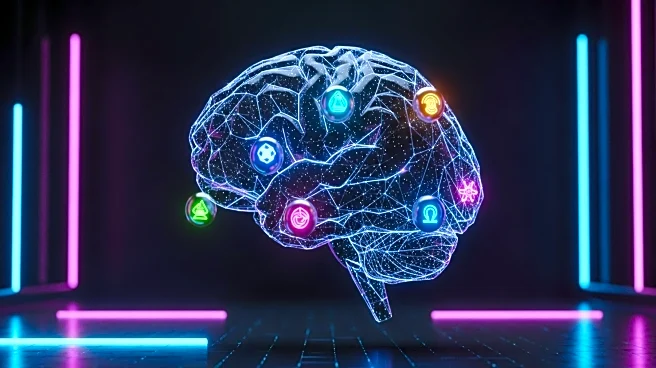What is the story about?
What's Happening?
Researchers at Skoltech have developed a mathematical model suggesting that the human brain may function optimally with seven senses rather than the traditional five. This model, published in Scientific Reports, explores the concept of memory engrams, which are ensembles of neurons firing together across multiple brain regions. The study posits that when memory concepts are characterized by seven features, the capacity for distinct objects held in memory is maximized. This finding could have implications for artificial intelligence and robotics, as well as a deeper understanding of human memory.
Why It's Important?
The study's suggestion of seven senses challenges traditional sensory categorization and could lead to advancements in AI and robotics by providing a new framework for memory modeling. This research may also offer insights into cognitive health, potentially impacting how conditions like Alzheimer's and Long COVID brain fog are understood. By maximizing memory capacity, the study could influence future developments in technology and healthcare, offering new ways to enhance human-machine interaction and cognitive therapies.
What's Next?
Further research may explore the practical applications of this model in AI and robotics, potentially leading to innovations in how machines process sensory information. Additionally, the study could prompt neuroscientists to investigate the possibility of humans evolving additional senses, such as radiation or magnetic field detection. This could open new avenues for understanding human cognition and developing technologies that mimic human sensory processing.
Beyond the Headlines
The study raises ethical and philosophical questions about the nature of human perception and the potential for enhancing or altering sensory experiences. It also suggests a shift in how cognitive health is approached, emphasizing the importance of sensory diversity in maintaining mental well-being.















